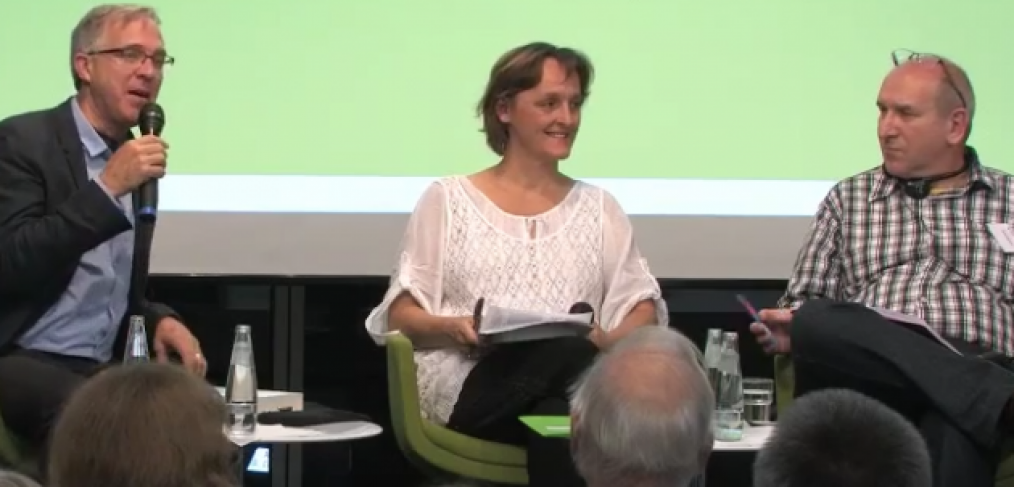One of the more complicated, mostly unresolved issues facing most commons is how to assure the independence of commons when the dominant systems of finance, banking and money are so hostile to commoning. How can commoners meet their needs without replicating (perhaps in only modestly less harmful ways) the structural problems of the dominant money system?
I’m thrilled to report that the Commons Strategies Group finally has its own handsome, up-to-date website! Whenever anyone asks me about the commons work that I’ve been doing over the past five or six years – and that of my dear colleagues Silke Helfrich and Michel Bauwens – I can now point them to this beautifully designed site.
A step through the city of the Commons of 2040, an environment that can provide the conditions and infrastructures for commoning in urban areas.
Patterns of Commoning is arguably the most accessible and broad-ranging survey of contemporary commons in print.
From open access platforms to managed digital commons: how can we unleash the enormous value that distributed, autonomous production can create.
David Bollier describes how the Commons (and Commons-based law) might be a force for reducing inequality
A summary from the Commons Strategies Group recent event in Berlin.
“In King John’s time, enclosure was mostly about the forest. Today it’s about everything, including life itself.” The Magna Carta and Law for the Commons.
Contribute to the phase transition first; and be ready for the coming sparks and organic events that will require the mobilization of all.
The topic of the “deep dive”: Can leading alt-economic and social movements find ways to work more closely together? Can there be a greater convergence and collaboration in fighting the pathologies of neoliberalism?










